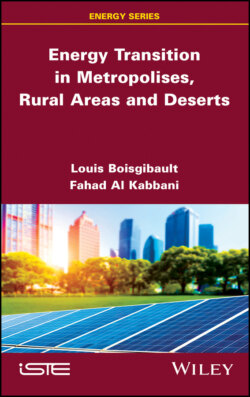Читать книгу Energy Transition in Metropolises, Rural Areas, and Deserts - Louis Boisgibault - Страница 9
Оглавление
Foreword
“Think global, act local” for an ecological transition in the service of man and therefore of the planet, such was the major challenge of the 20th Century which, to paraphrase André Malraux, French novelist and Minister of Cultural Affairs, was “to be of ecology or not to be”.
The global dimension is widely recognized in practice. After the warning issued by the Club of Rome in 1960, the Stockholm Conference in 1972 inaugurated the various earth summits, which have been held every 10 years since then (Nairobi in 1982, Rio in 1992, Johannesburg in 2002, Rio in 2012). Since 1995, the “Conferences of the Parties” have brought together diplomats and experts on climate change every year. Thus, COP21 in Paris in 2015 reached an agreement to fight global warming.
The many international meetings over more than half a century have enabled experts from all over the world to reflect and propose further growth that is more respectful of the environment and the dignity of human beings, but also, through a wealth of literature, for academics from all continents to exchange, discuss and debate on sustainable development.
On the other hand, the local dimension is less studied. More than ideas, it is the actions that must be observed, analyzed and evaluated. From this point of view, the book written by my two former PhD students is very timely. The approach, far from being dogmatic, is first and foremost practical and empirical. This work is the result of many months of investigation by the authors on the different fields they studied. However, the choice of these territories allows them to have a fairly universal view of the issue: developed countries (France), developing countries (Senegal and Morocco), emerging countries (Saudi Arabia), metropolises (Lille and Riyadh) and rural areas (Pays de Fayence), temperate zones and deserts. All the cases encountered at the local level were perceived by the two authors who complement each other admirably in their research. Moreover, the cultural dimension has not been forgotten, even if it is reduced to well-chosen examples.
It is with great satisfaction that I write this foreword, as, having been a thesis supervisor, it is comforting to see that two of my most brilliant students have joined forces to tackle this vast subject essential for the future of the world, the ecological transition. I hope that this book will meet with the success it deserves, because it provides an innovative and precise insight into “local action”, without which the ecological transition cannot be achieved.
Jean GIRARDON
Professor Emeritus
Sorbonne Université
